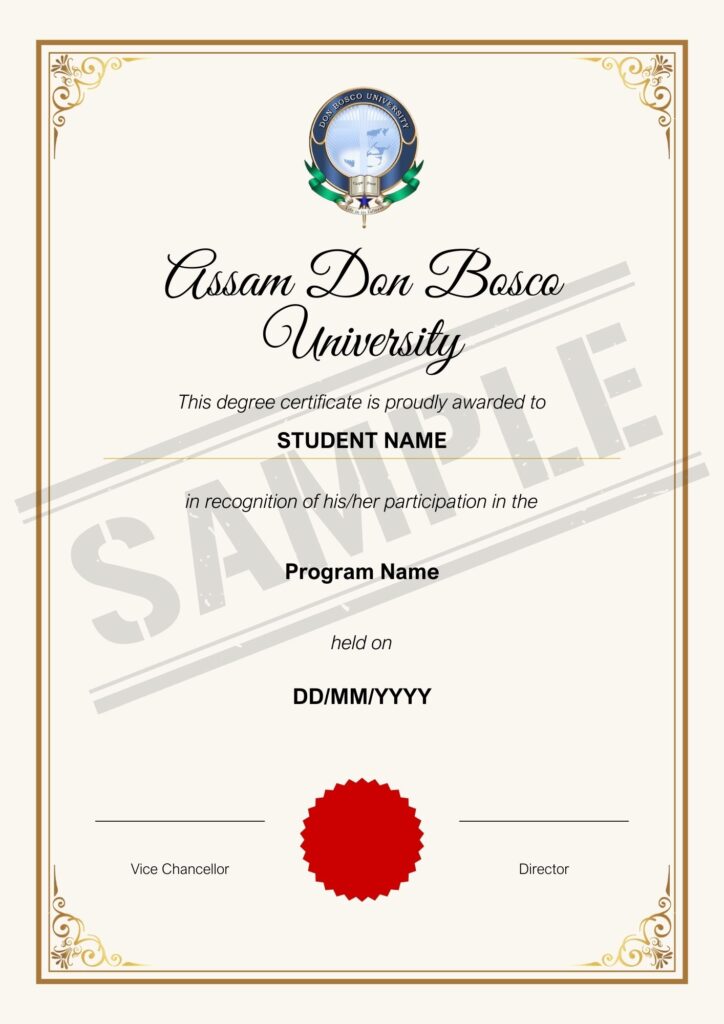Test Program
BA (Honours) Mass Communication
Duration: 03 Years
Nof seats : 60
BA (Honours) Mass Communication
BA (Honours) Mass Communication programme at Don Bosco University introduces the students to the world of communication including print media, journalism, film, television, radio, video, online and mobile media production and photography. Studies in emerging areas of convergent media and social media form important components of this study programme.
Having acquired a graduate degree in Mass Communication at the University, students will be equipped to pursue careers as reporters, presenters, radio jockeys, fill a variety of roles in media houses and production companies, or start their own ventures and studios. It opens the door to wide choices in higher studies too.

Program Highlights and Advantages
Discover our Degree Programs and begin an exciting educational journey

Emerging specializations
New-age specializations shaping tomorrow's business landscape

Robust Learning Model
550+ hours of video lectures to help you maximize your learning

Personalized Learning
Personalized learning through unique option of choice based credit system

Real World Projects
Real world projects & case studies to help you succeed in your domain
Program Overview & Structure
| Introduction to Journalism |
| Introduction to Media and Communication |
| Ability Enhancement Compulsory Course (AECC)- I |
Generic Elective (GE) Course – I (any one)
|
| Reporting and Editing for Print |
| Media and Cultural Studies |
| Ability Enhancement Compulsory Course (AECC)- II |
Generic Elective (GE) Course – II (any one)
|
| Introduction to Broadcast Media |
| History of the Media |
| Advertising and Public Relations |
| Skill Enhancement Course – I |
Generic Elective (GE) Course – III (any one)
|
| Introduction to New Media |
| Development Communication |
| Media Ethics and the Law |
| Skill Enhancement Course – II |
Generic Elective (GE) Course – IV (any one)
|
| Global Media and Politics |
| Advanced Broadcast Media |
Discipline Specific Elective- I & II (Choose any two)
|
| Advanced New Media |
| Communication Research Method |
Discipline Specific Elective- III & IV (Choose any two)
|
Degree offered by us

Eligibility
Grade /Marks requirement from qualifying examinations
Passed Higher Secondary School Leaving Examination (or equivalent) in any stream with 50% in the aggregate and 50% in English.
Career Impact
How We Help You Build Your Dream Career
Industry Mentors
Personalized guidance from career experts throughout the academic journey.
Placement Drives
Connect with employers & explore opportunities through interactive online events.
Master Classes
Access comprehensive help for resume building, interview preparation and job placement.
Profile Building
Build a credible professional profile by showcasing your skills through hands-on projects.
F.A.Q.
Supporting Subheading
The university offers a range of undergraduate, graduate, and doctoral programs across disciplines including engineering, science, arts, business, and health sciences. Each program has its own specific requirements and areas of focus.
You can apply online through our university’s admissions portal. Complete the application form, submit the required documents (such as transcripts, test scores, and recommendation letters), and pay the application fee. Detailed instructions are available on our admissions webpage.
Admission requirements vary by program. Typically, undergraduate programs require a high school diploma and specific academic credentials, while graduate programs may require a bachelor’s degree in a related field, relevant test scores, and work experience. Be sure to review the specific requirements for the program to which you are applying.
Yes, the university offers a variety of scholarships and financial aid programs based on academic merit, financial need, and other criteria. Information about available scholarships and how to apply is available on the university’s financial aid webpage.
Application deadlines vary depending on the program and the intake period (e.g., fall, spring). Be sure to check the program’s admissions page for specific deadlines.
